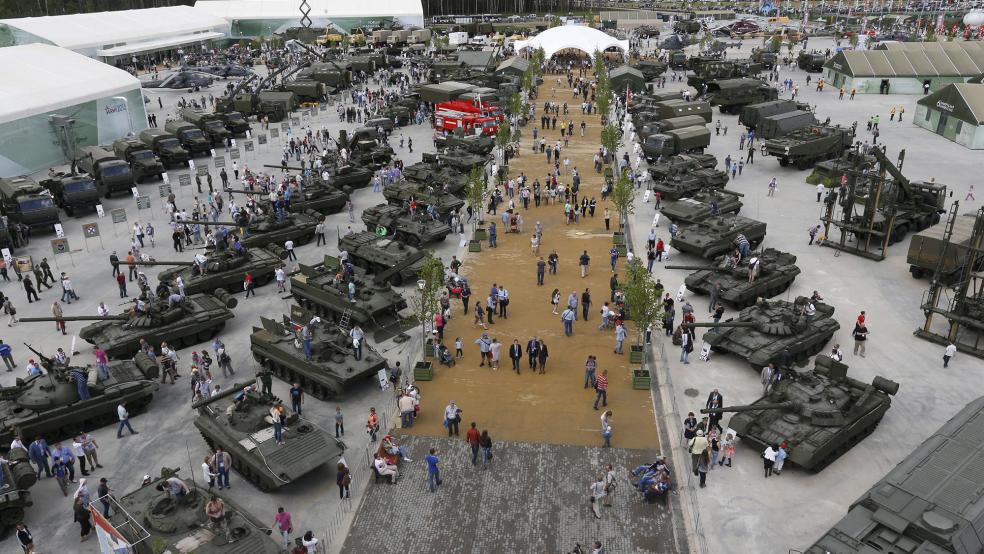One of the prevailing narratives about the fall of the Soviet Union in the 1980s was that the Kremlin destroyed its own economy from within by dedicating scarce resources to the arms race with the United States. Rather than investing in necessary technologies and infrastructure, the story goes, the Kremlin poured money into a self-destructive military build-up that eventually hollowed out the rest of the economy.
Not all historians of the period agree on that explanation, but many believe that military spending to the exclusion of other investment at least contributed to, if not directly caused, the collapse of the Soviet Empire.
Related: Putin’s War of Words with Turkey Escalates to Nukes and Ethnic Cleansing
So, one might expect that Russian leaders who lived through that period, such as current President Vladimir Putin, might be somewhat sensitive to the possibility that starving other parts of the economy in order to feed a growing military is potentially dangerous.
However, Sergei Alexashenko, former deputy chair of the Central Bank of Russia and former chair of Merrill Lynch Russia, doesn’t seem to be the case.
Now a senior fellow at the Brookings Institution, Alexashenko wrote in an op-ed published Thursday in the Moscow Times that in a time of particular economic peril, the Kremlin is once again going down that same road.
“It is well known that only the upsurge in military production is keeping Russian industry afloat, even while it wastes precious resources needed for moving the economy forward,” he wrote.
Related: Putin Stirs the Pot in Turkey and Iraq
“The most discouraging outcome of 2015 is the continued decline in investment,” he continued. “The latest sequestration in the federal budget has led to a new round of investment cutbacks in non-military sectors. The volume of investment in both industrial and residential construction has fallen. In 2016, budget expenditures will drop by at least 3 percent to 5 percent in real terms. Two-thirds of all profits are earned by raw materials export companies, whose owners — according to the Finance Minister — prefer paying dividends to investing in development because they ‘lack confidence that investing profits in Russia would ultimately produce revenues.’”
It’s a grim picture indeed for Russia, which is suffering under multiple burdens. Stung by international sanctions imposed after its invasion of Ukraine’s Crimean peninsula, Russia has also had to deal with plummeting prices for oil and natural gas. The Russian economy is disproportionately dependent on income from oil and gas sales, and the price of crude oil, which has plummeted by nearly two-thirds in the last 18 months, has had a devastating effect on the government’s finances and on the ruble. After the oil-pricing cartel OPEC announced this week that it would not cut production, crude prices dropped even further and the value of the Russian ruble against international benchmark currencies like the U.S. dollar moved toward record lows.
The ruble is worth about half as much as it was when oil was selling at $100 per barrel rather than its current level in the mid $30s. Russia has spent down a large fraction of its foreign currency reserves to protect it, but with little success.
The only certainty in the Russian economy these days appears to be that ordinary Russians will continue to suffer. One of the most popular investment vehicles in the country today is a derivative tied to the rate of inflation that rises in value as the already punishing inflation rate increases.
However, even in the face of bad economic news – and partly because of it – Putin remains wildly popular in Russia. How long he can maintain that level of popularity in the face of a flagging economy is anybody’s guess. But given the resilience of Putin’s image through Russia’s recent setbacks, it may take more than the current level of privation faced by ordinary Russians to generate real public anger.





